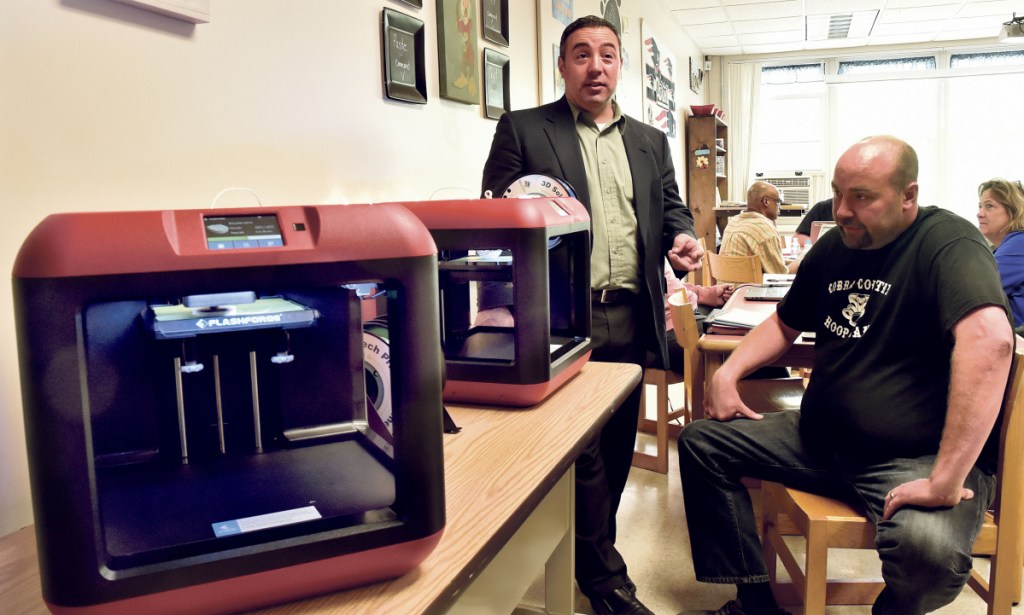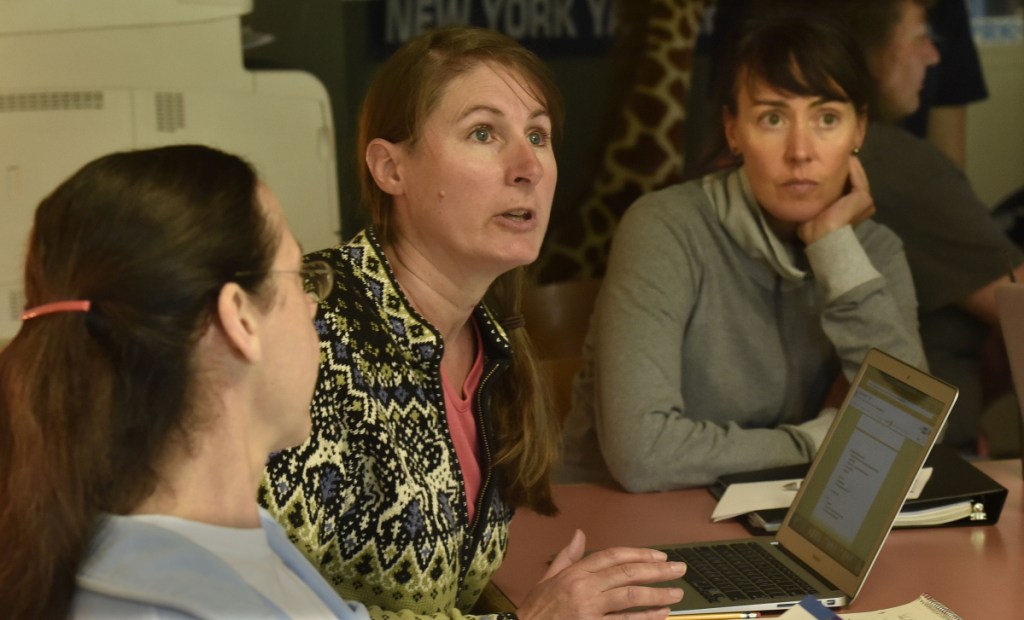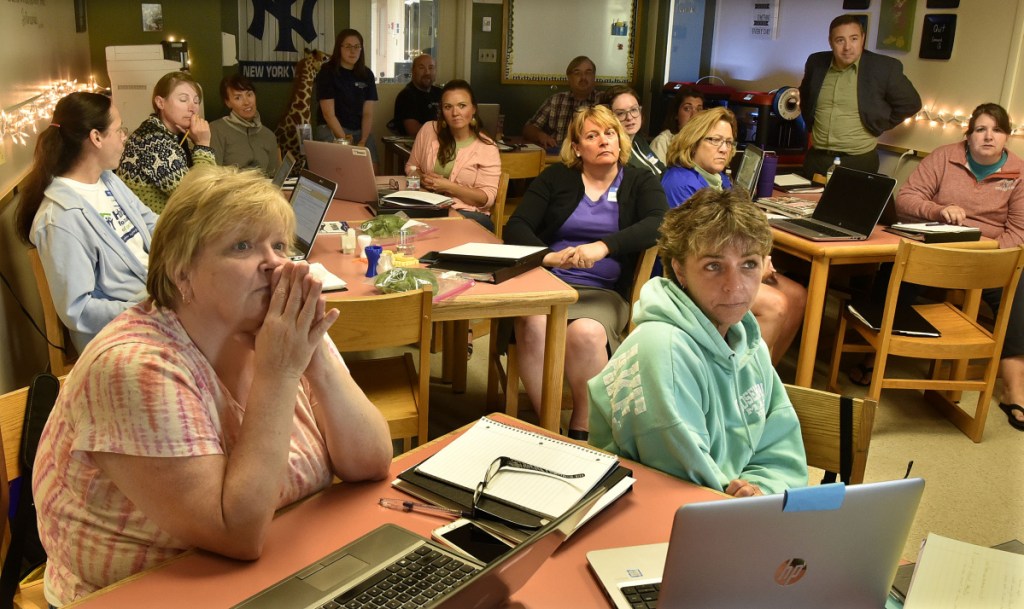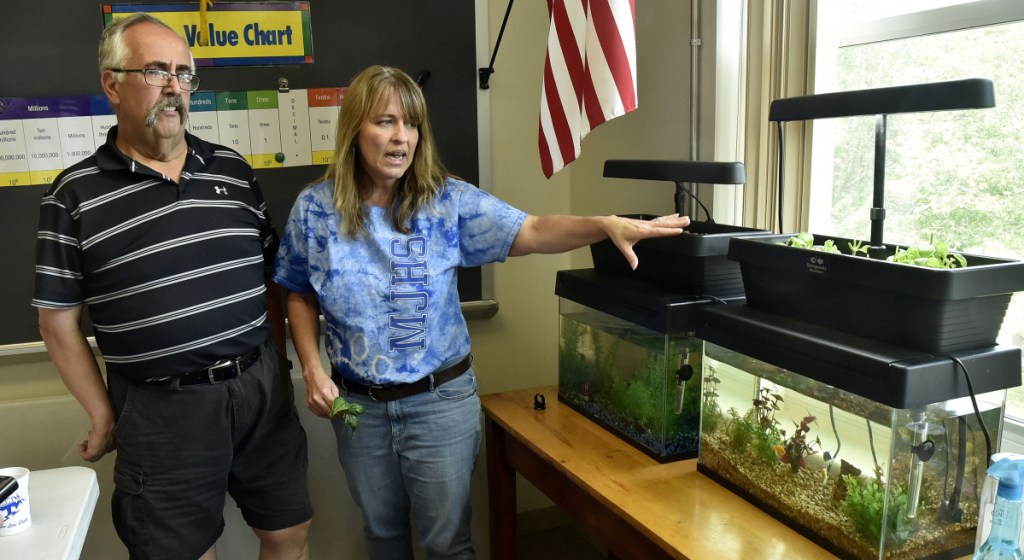MADISON — School teachers from four central Maine school districts gathered this week for what is called the STEAM Academy — collectively learning from some of their peers how to teach in the new science, technology, engineering and mathematics curriculum, while adding an A for “art” into the mix.
More than 30 educators were themselves students who will bring what they have learned back to the classroom in the fall, said Michael Tracy, superintendent in North Anson-based Regional School Unit 74.
“The major change this year is that we’ve moved more to a ‘train the trainer’ model,” Tracy said at Madison Junior High School, where the classes were being held. “Kathy Bertini, who is the STEAM coordinator, was the STEM coach last year. She’s coordinating the whole program and teaching the other teachers.”
Rather than go from school to school to teach the dynamics of STEAM, Bertini had the teachers come to her, he said. The entire group will “interface” monthly to make sure the program is progressing smoothly and the teachers have the resources they need to keep it going, with a goal of success in the classroom in the coming year.
“Students are given a challenge and it addresses a problem, and they have to come up with a model to solve that problem through design,” Bertini said. “For example, if we are trying to have students learn to grow a plant without soil, they could produce a 3-D container to grow that plant, and then we could challenge them to make a soil medium. We call that whole process a ‘build,’ because it addresses engineering design thinking and innovation.”
Some of the items being showcased in the lobby of the junior high school are objects engineered by students using 3-D printers — an additive manufacturing process that creates a physical object from a digital design. There are different 3-D printing technologies and materials used to print with, but all are based on the same principle — a digital model is turned into a solid three-dimensional physical object by adding material layer by layer.
The STEAM program is a collaborative of educators from the Bingham-Moscow school district, the Madison district and RSU 74, using almost $700,000 in Maine Department of Education grant money. Teachers from the Mt. Blue district in Farmington also attended this week’s STEAM Academy program.
Bertini said Wednesday that the concentration that day was on engineering technology, with training on the 3-D printers.
“Each district will have an innovation center within their own identity where students and staff can work to further the STEAM platform,” she said. “Each school will have 3-D printing as part of their curriculum next year.”
Art teacher Richard Reichenbach, of Industry, who teaches in RSU 74, led the training Wednesday before a roomful of other teachers.
Reichenbach showed the class what he called a scribbley-doo — tangible items made by first-graders from the 3-D printer starting with a simple scribble that “turned into a creature.”
“We photograph it and convert it into a 3D image and we print it. It’s the manufacturing of tomorrow,” he said. “If you want to bring manufacturing back to Maine, this is it right here. They’re printing houses. They’re doing glass, bridges, clothing, food. It’s used in the medical field and all fields now.”
Joy West, a mathematics and science teacher in Bingham, said that learning 3-D printing will enhance learning in the classroom across all subject areas.
“The students create projects and go through the process of revising and editing their projects. That’s what we’re learning here this week, different ways to use other materials like the 3-D printer and use that in our classroom to enhance learning,” West said.
Maria Howatt, a chemistry and physics teacher at Mt. Blue High School, said the STEAM process is important because students usually don’t have life experiences to link them to the information they are being taught.
“And so, as we give them more hands-on activities, they’ll be able to learn more in depth, learn how to think through problems instead of just rote memorization of stuff they’re going to forget in two weeks,” Howatt said. “We’re trying to get them so they’re proficient and understand something, and have it become a part of them instead of them regurgitating.”
Doug Harlow — 612-2367
Twitter:@Doug_Harlow
Send questions/comments to the editors.







Comments are no longer available on this story